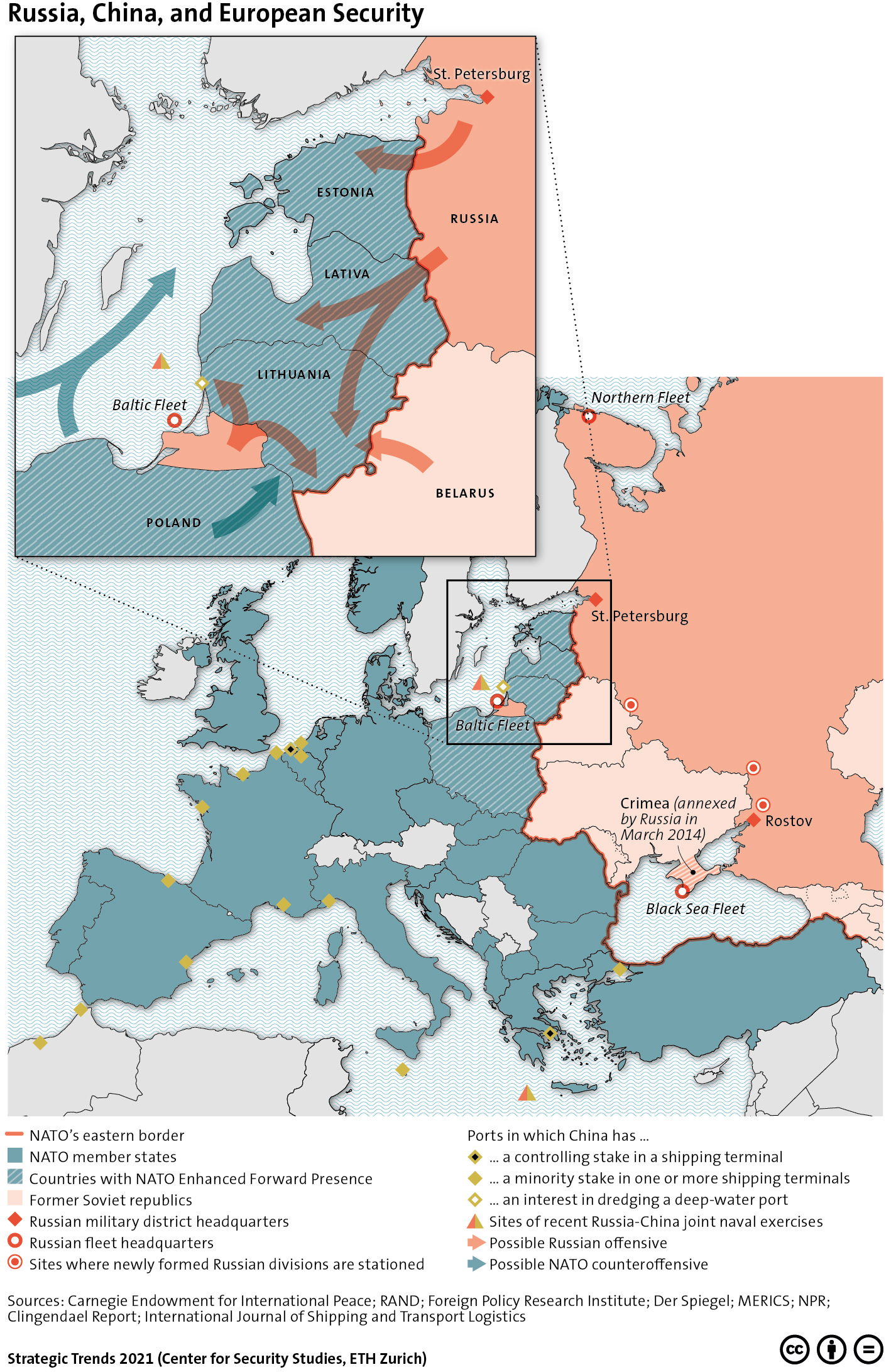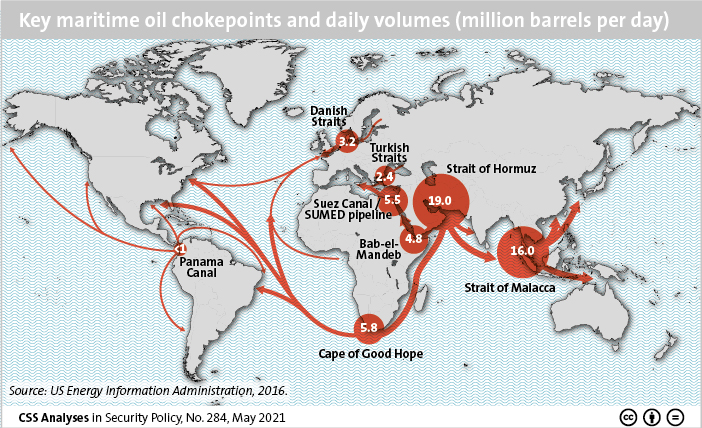
This week’s featured graphic shows Russia, China, and European Security. To find out more on the impact of the China-Russia relationship on transatlantic security, read Brian G. Carlson’s Strategic Trends 2021 chapter here.

This week’s featured graphic shows Russia, China, and European Security. To find out more on the impact of the China-Russia relationship on transatlantic security, read Brian G. Carlson’s Strategic Trends 2021 chapter here.

This week’s featured graphic maps key maritime oil chokepoints and daily volumes. For more on the Geostrategic Storm in the Indian Ocean read Boas Lieberherr’s CSS Analysis in Security Policy here.

This article was originally published by the Institute for Strategic, Political, Security and Economic Consultancy (ISPSW) in January 2018.
Summary
The systems and networks naval forces must protect are complex and large in size. Ships are increasingly using systems that rely on digitization, integration, and automation. Offensive actors understand the naval reliance on communications, ISR, and visualization technologies, and perceive them as vulnerable to disruption and exploitation. Cyber has been moving from a supportive to a rather active role within an operational force. With today’s rapidly evolving threats, naval forces are well advised to develop a sense of urgency not only to develop cyber resilience capabilities that will enable them to “fight through”, but also cyber warfighting capabilities as these will be particularly valuable when they can be delivered reliably and in concert with other capabilities.

This article was originally published by the S. Rajaratnam School of International Studies (RSIS) on 2 June 2017.
Synopsis
Malaysia and Singapore have recently introduced new measures for submarine safety while China is reportedly contemplating restrictions on submarines operating in its waters. However, these measures are not without problems.
Commentary
The Malasian government has recently established three Permanent Submarine Exercise Areas off the coasts of Peninsula Malaysia and East Malaysia. These are aimed at providing a safe area for Malaysian submarines to conduct their operations.
To facilitate the safety of these operations, Malaysia requires certain activities in these areas, such as weapon firings, diving operations and surveying, be notified to Malaysian authorities. Failure to provide this notification means that the Malaysian government is not responsible for any damage or loss of ships, equipment, and life, caused as a result of an accident involving a Malaysian submarine.

This issue of the PacNet was published by the Pacific Forum CSIS on 12 July 2016. The article first appeared in the CSIS Asia Maritime Transparency Initiative Brief
Today an arbitral tribunal at the Permanent Court of Arbitration in The Hague issued a long-awaited ruling in Manila’s case against Beijing’s claims in the South China Sea. The five-judge tribunal was established under the compulsory dispute settlement provisions of the United Nations Convention on the Law of the Sea (UNCLOS), and despite China’s refusal to participate in the proceedings, its ruling is final and legally binding. For a closer look at the tribunal’s ruling and the areas it leaves legally disputed in the South China Sea, visit the Asia Maritime Transparency Initiative’s new interactive map.
Q1: What did the tribunal rule?
The judges issued a unanimous decision in favor of the Philippines on the overwhelming majority of the claims it made against China. They invalidated Beijing’s claims to ill-defined historic rights throughout the nine-dash line, finding that any claims it makes in the South China Sea must be made based on maritime entitlements from land features. The tribunal ruled that any other historic rights China might once have claimed in what are now the exclusive economic zones (EEZ) or continental shelves of other countries were invalidated by its ratification of UNCLOS. On the question of specific maritime entitlements over disputed features, the court found that Scarborough Shoal is a rock entitled only to a 12-nautical-mile territorial sea. The judges cannot rule on sovereignty over that shoal, but ruled that China has violated the traditional fishing rights of Filipinos by not allowing them to fish at the shoal. Notably the tribunal said it would have found the same regarding Chinese fishermen if they were prevented access to the shoal by the Philippines.